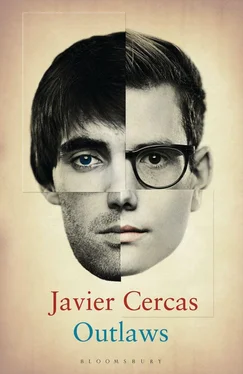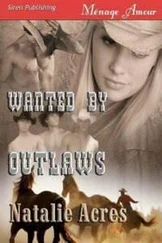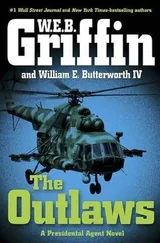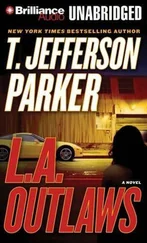‘That was all I wanted to know: just as I was aware of who Zarco had become, Tere was aware of who I’d become. I don’t know if she read my mind, but she added as if to downplay her words: Besides, there are only three criminal lawyers in Gerona; so we didn’t have a lot of choice. The other two are good, I said, now feeling confident enough to joke with her. Yeah, Tere conceded. But you’re the best. The flattery meant that this time it was me who smiled. Besides, Tere went on, we don’t know them, and we do know you. Not to mention that I’m sure they’re more expensive than you. They don’t interest us. Us knowing each other is not an advantage, I lied. And don’t worry: no lawyer’s going to charge you anything, much less in Gerona. I clarified: At the moment defending Zarco is still good for business. Tere insisted: That’s precisely why we’re not interested in your colleagues. We’re interested in you. And please don’t call him Zarco again: María told you already. Tere’s words were sharp, but not the tone in which she said them; even so, I couldn’t help but wonder if, whether or not María knew that I’d belonged to Zarco’s gang in my youth, Tere and Zarco were thinking they could blackmail me with the threat of revealing that secret past. Tere stubbed out her cigarette, took a sip of water and, opening her arms a little in an interrogative gesture, looked at me, looked at María and looked back at me. Well, Gafitas, will you or not?
‘I don’t know if I thought that I’d got what I was looking for (or that I couldn’t aspire to more), but the thing is I stopped pretending and accepted.’
‘Tell me something: were you scared that Zarco and Tere might reveal that you’d been part of their gang?’
‘Of course not. I might not have liked the idea of them telling, because I didn’t know what consequences it might have, but nothing more. It was one of the risks of defending Zarco; the rest were advantages. They already were before Tere had shown up, for the free advertising for my practice and because I was enormously curious to see Zarco again after more than twenty years (and perhaps also because, at a moment when almost everything bored me and the feeling of misunderstanding and that I was living someone else’s life I was telling you about earlier, I sensed that this unexpected novelty could be an incentive, the change I was waiting for); in any case, Tere showing up, and her being so happy at us seeing each other again, made it all much better. And of course, defending Zarco was risking unearthing a dangerous past, but wasn’t it better to dig it up once and for all, now that I had the opportunity to do so? Wasn’t it less dangerous to unearth it than to leave it buried? Wasn’t I obliged to a certain extent to unearth it?’
‘What do you mean?’
‘Well, that in some way I felt in debt to Zarco. I always suspected that before the heist of the Bordils branch of the Banco Popular I had run my mouth off to Córdoba, and that was the cause of the disaster, the reason that Zarco, Gordo and Jou got caught. I told you before. I always suspected that and I always suspected that Zarco suspected it too.’
‘You wouldn’t be thinking of the Gafitas in the first part of Wild Boys , would you? Although that character reflects in part how you saw Zarco, it’s a fictional character. And he doesn’t shoot his mouth off, of course: he informs on Zarco, betrays them all. That Gafitas has almost nothing to do with you.’
‘Almost: you said it. In any case, the Gafitas of his memoirs does have something to do with me, he isn’t a fictional character and he does shoot his mouth off. You’ll remember that too.’
‘Perfectly. Only that in the memoirs it’s not clear either that Gafitas shoots his mouth off.’
‘That’s true, it’s not clear. But most likely he did, most likely the Gafitas of the book did shoot his mouth off, and was responsible for the bank job going wrong. At least that’s what Zarco thinks, or that’s what he seems to think. And even if he hadn’t thought so. Even if it wasn’t true that I’d shot my mouth off to Córdoba. Maybe I didn’t. Even so, I felt that Zarco had lent me a hand when I most needed it: the least I could do was lend him a hand now that he was the one in need, right? Especially since by lending him a hand I would also be lending myself one.’
‘Zarco lent you a hand? I would say rather that he used you and turned you into a delinquent. Is that what you call lending a hand? You yourself recognize that he was on the verge of forcing you to share the fate of all the members of his gang.’
‘If that’s what you understood, I explained it badly: Zarco didn’t force me into anything; I chose it all. The truth is the truth. And don’t forget that he saved me, at the last moment but he saved me, or that having come so close to catastrophe was good for me: before meeting Zarco I was weak, and knowing Zarco made me strong; before meeting Zarco I was a boy, and knowing Zarco turned me into an adult. That’s what I meant when I said he lent me a hand.’
‘I understand. But let’s get back to the story, if it’s OK with you. Did you go to see Zarco after Tere and María left?’
‘No. I saw him the next day, in the afternoon. During those twenty-four hours I studied his prison record in detail and verified unsurprisingly that his official résumé was in the same league as his legend. Zarco had spent more than twenty-five years in prison or as the subject of manhunts and recapture and had been on trial fourteen times and accused of having committed almost six hundred crimes, among them no fewer than forty bank robberies and no fewer than two hundred robberies of gas stations, garages, jewellery stores, bars, restaurants, tobacconist’s and other shops, as well as a multitude of muggings and car thefts and break-ins. He’d been wounded six times in confrontations with the police and Civil Guards and another ten times in street or prison fights. Only twice had he been tried for homicide, and both times he was acquitted: the first time he was accused of having shot dead at the door of his house a Santa María prison guard with whom he’d long been in confrontation and who he’d denounced for persecution and torture; the second time he was accused of stabbing a fellow inmate during a riot at the Carabanchel prison in Madrid. Apart from that, he’d been to seven different reformatories, including all the elite ones, and sixteen different prisons, including all the maximum-security ones; moreover, he had escaped from all the reformatories and many of the prisons where they’d locked him up and, in spite of the number of altercations he’d had with the prison guards and the number of fines, punishments and disciplinary sanctions they’d imposed on him, he’d lived in permanent rebellion against his confinement and the conditions of his confinement, in a sort of permanent denunciation of the Spanish prison system: he’d participated in a multitude of riots, had organized several, had initiated two hunger strikes, had presented an infinity of complaints against his jailers and had inflicted injuries on himself as a sign of protest (several times he’d cut open his veins, several times he’d sewn his lips shut with twine). All this was more or less known, or more or less known by me. What I didn’t know and discovered then is that, from the point of view of defending him, Zarco’s story wasn’t as bad as I’d feared: to begin with, Zarco didn’t have to answer for any violent crimes, and the hundred and fifty years he had yet to serve in theory were not the result of a long sentence but a series of shorter consecutive ones, which could facilitate their conversion to concurrent sentences and the granting of special leaves and other penitentiary perks; moreover, it was easy to argue that Zarco had now paid his debt to society and then some, among other reasons because he’d barely lived in liberty since, at the age of sixteen, just after the robbery of the Bordils branch of the Banco Popular, he’d gone to prison to serve a six-year sentence, so most of the crimes he’d been accused of had been committed in prison. During those twenty-four hours I also revised my archive on Zarco, watched bits of Fernando Bermúdez’s four films inspired by him, reread passages from his two volumes of memoirs and revisited my memories of adolescence; what I didn’t do was speak to Tere again (or, indeed, with María): I didn’t want to do so until having spoken with Zarco.
Читать дальше












